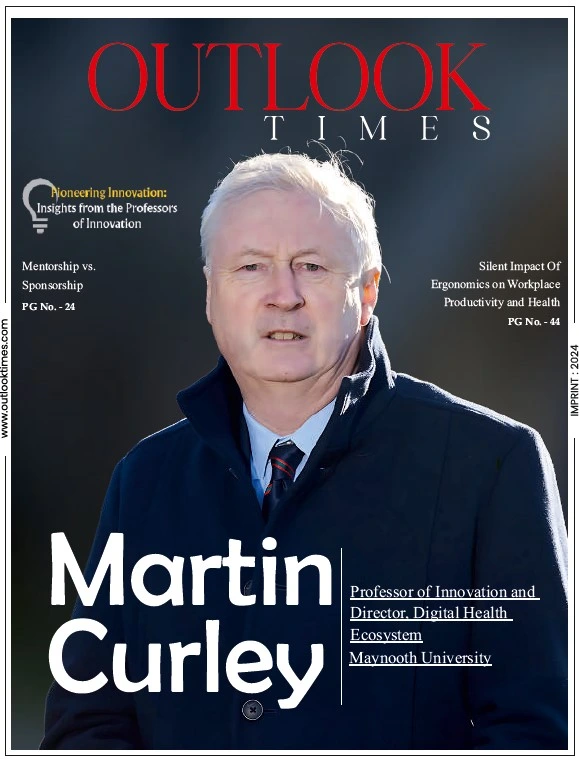The Future of Work: Adapting to Automation and Changing Labor Markets

The future of work is a topic of increasing importance and concern as technological advancements, automation, and changing labor markets reshape the way we work and the skills required for success. In this comprehensive article, we’ll explore the key trends shaping the future of work, examine the impacts of automation on jobs and industries, and discuss strategies for individuals, businesses, and policymakers to adapt to these changes.
The Impact of Automation on Jobs and Industries
Automation is one of the most significant drivers of change in the future of work, with the potential to disrupt industries, eliminate jobs, and create new opportunities. While automation has the potential to increase productivity, efficiency, and innovation, it also raises concerns about job displacement, income inequality, and the future of work.
Job Displacement: Automation has the potential to replace human workers in routine, repetitive tasks, particularly in industries such as manufacturing, transportation, and retail. This can lead to job displacement and unemployment for workers with low skills or in occupations that are easily automated.
Skills Mismatch: Automation is reshaping the skills required in the labor market, creating demand for workers with technical skills, digital literacy, and problem-solving abilities. However, many workers may lack the necessary skills to adapt to the changing demands of the workforce, leading to a skills mismatch and unemployment.
New Job Opportunities: While automation may eliminate some jobs, it also creates new opportunities in emerging industries such as artificial intelligence, data analytics, and renewable energy. These industries require specialized skills and expertise, presenting opportunities for workers to upskill and reskill for new roles.
Income Inequality: Automation has the potential to exacerbate income inequality by disproportionately benefiting high-skilled workers and exacerbating disparities in wages and employment opportunities.
Adapting to the Future of Work: Strategies for Businesses
Businesses play a critical role in adapting to the future of work and supporting their workforce through periods of change and transition. Some strategies for businesses to navigate the future of work include:
Investing in Employee Training and Development: Invest in employee training and development programs to upskill and reskill workers for emerging roles and technologies.
Promoting Flexibility and Agility: Promote flexibility and agility in the workplace by adopting remote work arrangements, flexible schedules, and alternative work arrangements to accommodate changing workforce preferences and needs.
Fostering a Culture of Innovation: Foster a culture of innovation and creativity within the organization by encouraging experimentation, risk-taking, and collaboration among employees.
Embracing Diversity and Inclusion: Embrace diversity and inclusion in the workplace by recruiting and retaining a diverse workforce that brings different perspectives, backgrounds, and experiences to the table.
Adapting to the Future of Work: Strategies for Policymakers
Policymakers play a crucial role in shaping the future of work and ensuring that the benefits of technological advancements and automation are shared equitably across society. Some strategies for policymakers to support workers and businesses in adapting to the future of work include:
Investing in Education and Training: Invest in education and training programs to equip workers with the skills and knowledge needed to succeed in the future economy.
Supporting Lifelong Learning: Support lifelong learning initiatives and provide incentives for individuals and businesses to participate in upskilling and reskilling programs.
Promoting Labor Market Flexibility: Promote labor market flexibility by modernizing labor laws and regulations to accommodate changing workforce dynamics and alternative work arrangements.
Addressing Income Inequality: Address income inequality by implementing policies that promote fair wages, income redistribution, and social safety nets to support workers displaced by automation and technological change.
Navigating the Future of Work
The future of work is being shaped by technological advancements, automation, and changing labor markets, presenting both opportunities and challenges for individuals, businesses, and policymakers. Adapting to the future of work requires a proactive approach that emphasizes lifelong learning, adaptability, and innovation. By investing in education and training, promoting flexibility and agility in the workplace, and fostering a culture of innovation, individuals and businesses can thrive in the rapidly evolving landscape of work. Likewise, policymakers play a crucial role in supporting workers and businesses through policies that promote education and training, labor market flexibility, and income equality. With concerted efforts from all stakeholders, we can navigate the future of work and build a more inclusive, resilient, and prosperous society for generations to come.
Outlook Times
Explore the journeys of today’s most successful business leaders, uncovering the strategies, challenges, and triumphs that define their paths to success.
Trending
-
 Ronit Pinto
Ronit Pinto -
 Beyond Limits: How Alloy Is Redefining Fitness Franchising
Beyond Limits: How Alloy Is Redefining Fitness Franchising -
 Firdaus Nagree
Firdaus Nagree -
 The Most Promising Tech Innovation of the Future
The Most Promising Tech Innovation of the Future -
 AI Excellence in Business Process Management
AI Excellence in Business Process Management -
 Iconic Voice in Soulful Leadership & Cultural Impact – 2025
Iconic Voice in Soulful Leadership & Cultural Impact – 2025 -
 Visionary Leaders: The Most Trailblazing Personalities Shaping 2025
Visionary Leaders: The Most Trailblazing Personalities Shaping 2025 -
 The Power Players: Most Dynamic and Impactful Personalities to Follow in 2025
The Power Players: Most Dynamic and Impactful Personalities to Follow in 2025 -
 The Unshakable Pillar of Modern Healthcare, 2025
The Unshakable Pillar of Modern Healthcare, 2025 -
 Dr. Aidan Mouat
Dr. Aidan Mouat -
 Trailblazing Legend: Iconic Leader Who Inspire the World
Trailblazing Legend: Iconic Leader Who Inspire the World -
 Sukh Sandhu
Sukh Sandhu -
 Ctoday Awards : Leaders Awards 2024,Felicitated Top Companies & Individuals
Ctoday Awards : Leaders Awards 2024,Felicitated Top Companies & Individuals -
 Most Innovative Personality in 2025
Most Innovative Personality in 2025 -
 Top CEOs: Mastering the Art of Leadership and Innovation
Top CEOs: Mastering the Art of Leadership and Innovation -
 Antonella Rubicco
Antonella Rubicco -
 Pioneering Innovation: Insights from the Professors of Innovation
Pioneering Innovation: Insights from the Professors of Innovation -
 The Most Tremendous Personalities Of Our Time
The Most Tremendous Personalities Of Our Time -
 Teaching GOATs
Teaching GOATs -
 Herve Heully
Herve Heully
